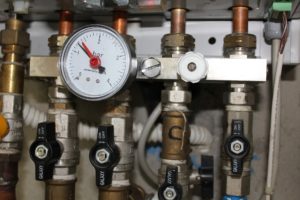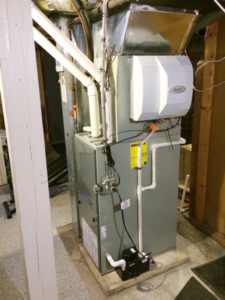Because you won’t be using a heating system throughout the year, it’s easy to put the decisions on a heating system on the back burner. But the reality is that putting these decisions on hold will only lead to uninformed decisions in the long run. If you don’t spend a lot of time mulling over the ideal heating system early on, chances are, you will end up having any heating system installed. When that happens, your poor choice may lead to problematic issues such as maintenance and incompatibility to your home.
When the cold season sets in, one of the more important things your home needs is an effective heating system. Choosing the right heating system for your home will help make you and your family more cozy and comfortable even when the weather is freezing cold. In general, you may choose between these two heating systems: furnaces or boilers.
The furnace vs the boiler
There are some people who use the term furnace and boiler because sadly, they don’t know any better. However, it is important to note that the difference between a furnace and a boiler go beyond semantics.
A furnace is a heating system that makes use of fuel to create heat. This fuel may come in the form of gas, oil, or electricity. Once the heat is created, it is transferred to the air by a heat exchanger. The warm air is through your home with the help of a series of ducts.
Most modern homes opt for furnaces. And with good reason. Your architect or contractor will most likely check the duct work for your furnace. Once you’re all set, he’ll say you’re good to go with installing a furnace in your home. Why do most homes prefer a furnace over a boiler? A furnace works well in boosting energy efficiency, which very well translates to less money spent on energy consumption for your heating system. Furnaces are also ideal for zoning and varying the speed of the warm air circulation in your home.
On the other hand, a boiler works by utilizing a fuel source to heat a fluid. In this case, this fluid may either be water or glycol. Once the fluid is heated, it is pumped through a hydraulic heating system to various medium like radiators, or in-floor heating loops. Since a boiler is basically a hydronic heating system, it also comes in handy when you need hot water for bathing, cooking, and washing. Whereas furnaces require ductwork, a boiler does not require any.
While boilers are traditionally found in older homes, time has proven that this type of heating offers a multitude of benefits to homes. For one, your underfloor tubing can be connected to your boiler to keep cold feet at bay. This will produce invisible warm heat and make your floors comfortably toasty. You may also use your boiler to melt the ice that has accumulated on your garage so you won’t have to do all the manual work with a shovel. You may also use a boiler to warm and dry your bathroom towels. Finally, boilers can be your best bet if you want your home to be extra cozy and comfortable. Your boiler can be used to heat swimming pools and hot tubs.
How to choose
There is more to choosing between a furnace and a boiler than meets the eye. But in reality, you need to be careful about deciding. In fact, most people even consult their architects and contractors when it comes to choosing a better heating system for their home because your choice depends on the current architecture of your home. If you’re doing an upgrade, it would be better to discuss this with the experts first before giving your decision a go.
In most cases, if you’re looking to upgrade your existing heating system, your choices are limited by the existing architecture of your home, and only certain types of home comfort systems will work properly. That’s why it’s important to identify the key functionality of each heating system so you can make an informed decision for your home.
Should your purchase one now?
Knowing the difference between the two and the benefits you may get from them will help you discuss your best options with your architect or contractor. But while discussing your alternatives is a necessity, purchasing a heating system is not. If you are not yet ready to purchase a heating system, you may opt to rent one, instead.
 The most obvious advantage of renting a heating system is that you wouldn’t have to pay up on large sums of upfront costs for the unit itself and the installation it requires. If you feel that you are a bit low on budget, renting a heating system just might work for you. By renting out your heating system, you will only need to pay for monthly rental costs – that would definitely be a bit easier on the pocket.
The most obvious advantage of renting a heating system is that you wouldn’t have to pay up on large sums of upfront costs for the unit itself and the installation it requires. If you feel that you are a bit low on budget, renting a heating system just might work for you. By renting out your heating system, you will only need to pay for monthly rental costs – that would definitely be a bit easier on the pocket.
Moreover, renting a heating system is a good call if you have discussed your options with your architect and contractor but still have not come up with a final decision. Renting out a unit gives you ample time to test out both heating systems so you will have a better way of knowing which one would work better for your home before finalizing the installation.
When NOT to rent

It goes without saying though that renting a heating system is not for everyone. There are some instances where renting a heating system just won’t cut it. For example, if you are flipping homes or you are thinking of selling your home in the future, investing in an efficient and reliable heating system early on will definitely add value to your home. As mentioned, purchasing and installing heating system are more costly because of the upfront costs, plus, there are also the costs that you may incur for repairs and maintenance. But if that latter issue is your main concern, you have the option to consider a maintenance plan as this plan will cover your annual maintenance at a more reasonable cost.
Once you have considered the key factors between a furnace or a boiler and have decided on which heating system is more ideal for your home, you’ll be all set when the cold season strikes.


